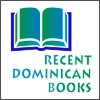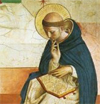It is rather fitting that this book about the educational approaches of an Order founded in the ‘old world’ of medieval Europe should be published in a ‘new world’ country about as far away as one can get from Europe. Fitting too that the book should draw on authors from around the world for this enterprise, because Australia, founded as an English colony, is rapidly becoming a multicultural society—as is the case for so many countries today. The future is exciting but enormously challenging. A book that draws on the rich heritage of the order as well as the wide experience of its current members to promote the ‘intelligent use of liberty’ is timely. All branches of the Dominican family are represented in the 33 essays of the book: laity, sisters, contemplative nuns, friars. There are noted experts in various fields of education, artists, preachers, and those with long experience in one or more endeavours of Dominican education. The book is divided into two sections. The first, comprising 14 essays, identifies the foundational principles and values of Dominican education and the contribution that a number of major figures in our tradition have made by living and thinking about these principles and values (Aquinas, Albert the Great, Catherine of Siena, Eckhart, Las Casas, Rose of Lima). The second section, comprising 19 essays, could be said to continue in the contemporary world the witness of these great figures. Authors from around the world report and reflect on how Dominican education has been implemented in a wide variety of socio-political and ecclesial contexts. The number and scope of the contributions cannot be commented on adequately in one brief review. Some samples will hopefully give readers a taste of what the book contains. There are forewords by the Master of the Order, and by Margaret Ormond, the immediate past Coordinator of Dominican Sisters International (DSI). The Master sees the various approaches to Dominican education as manifestations of the Order’s preaching mission and as opportunities to develop that mission. Margaret Ormond’s identification of resourcefulness, solidarity (particularly with the poor) and imagination are key values for developing the Order’s preaching mission in ways that respond authentically to a rapidly changing word. Within the first section, Timothy Radcliffe, the former Master of the Order, identifies a number of challenging new opportunities that ‘Preaching to the Young’ presents: the internet, chat rooms, blog sites, sporting venues. On a more sombre note, Radcliffe identifies ‘an imperative to be joyful that they cannot sustain’ as one reason for the current epidemic of suicides among the young. ‘The primary witness to good news is therefore our joy’ (147). For Chris McVey, writing on ‘Dominican Values’, Dominican education begins ‘with a perception of real need, and the response is a merciful compassion’ (124). A Dominican who is not filled with the joy of the good news is unlikely to be a compassionate ‘educator/preacher’.
Guido Vergauwen tackles the role of study in Dominican education (‘The Charism of Study in the Education of Dominicans), insisting that ‘Studies themselves are an apostolate, an integral part of the (Dominican) mission’ (89). Vergauwen asks ‘for what mission are we forming Dominicans?’ and answers that he/she should be a reasonable and wise person, well informed, aware of limitations and open ‘to the foolish wisdom of the cross’. A Dominican will not be the one with easy answers but difficult questions that are inspired by a passion for the truth. Philip Smith, in ‘A Dominican Philosophy of Education’, identifies 4 themes that characterise Dominican education: the relation of faith and reason, the role of philosophy, the goodness of creation, an appropriate method/approach. The second section offers readers an opportunity not only to inform themselves about the wide variety of Dominican educational ventures but to experience ‘at first hand’ as it were the life and work of these ventures. The essays are not only informative but also engaging, communicating something of the passion and conviction that drives each venture. . Marian O’Sullivan (Dominican Education in an Evolving Universe) makes the important point that the degradation of God’s good creation means also the degradation of the interior world of the human person. There is an essay on the Emaus Spiritualities Centre in Peru from Maria Julia Ardito, essays on evangelisation/education initiatives in Brazil and, very welcome, two essays on the work of Dominican sisters (Dutch and Indonesian) in Indonesia, as well as an essay on the impressive tradition of education fostered by the university of Santo Tomas, Manila. Africa is represented by an essay from Albert Nolan in the first section, and another by Sheila Flynn in the second section. Other essays, each well worth reading, are: on Le Cerf publishing house by Eric de Clermont-Tonnerre, on Theological Education (Kathleen McManus of the US), on Education in the area of the trafficking of women (Helene O’Sullivan of the US), and on the contemporary university (Erik Borgman of the Netherlands). There are essays by Dominican Sisters of Australia and New Zealand on various aspects of their extensive involvement in education in both countries. In an afterword (The Fish that Got Away) the editors, Gabrielle Kelly and Kevin Saunders, regret that certain parts of the Dominican world are not represented in the collection (India, Pakistan, Eastern Europe, the Middle East). Some areas were unable to contribute essays for a variety of reasons. Hopefully, these areas of the Order will be able to make their valued contributions in a second volume. This second volume could also serve as a response to the first—the fruit of reflection and critical debate. While the Order’s involvement in education is impressive and valuable, there are no doubt areas where we can improve. We are limited human beings after all and criticism, in its educational sense, means taking what is there and identifying its shortcomings in order to make it better. John Neill OP
A description of the book can be found at http://www.atfpress.com/atfpress/book.php?ID=74
|
A Dominican who is not filled with the joy of the good news is unlikely to be a compassionate ‘educator/ preacher’ Available in the US through this link: |





